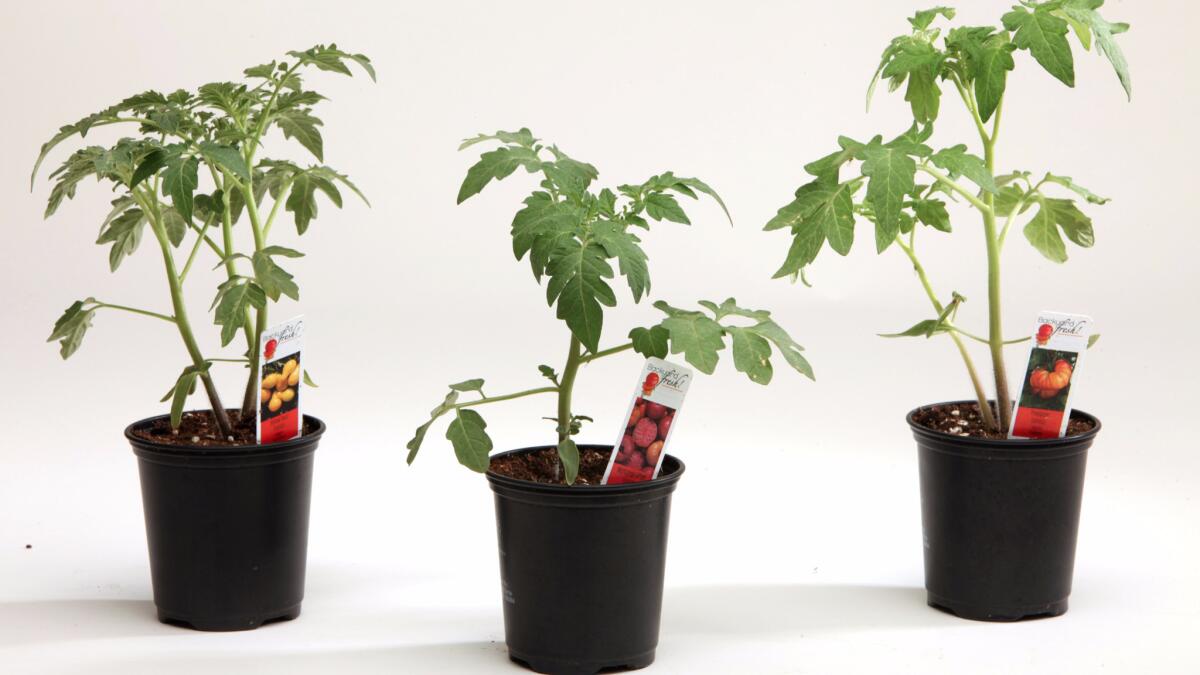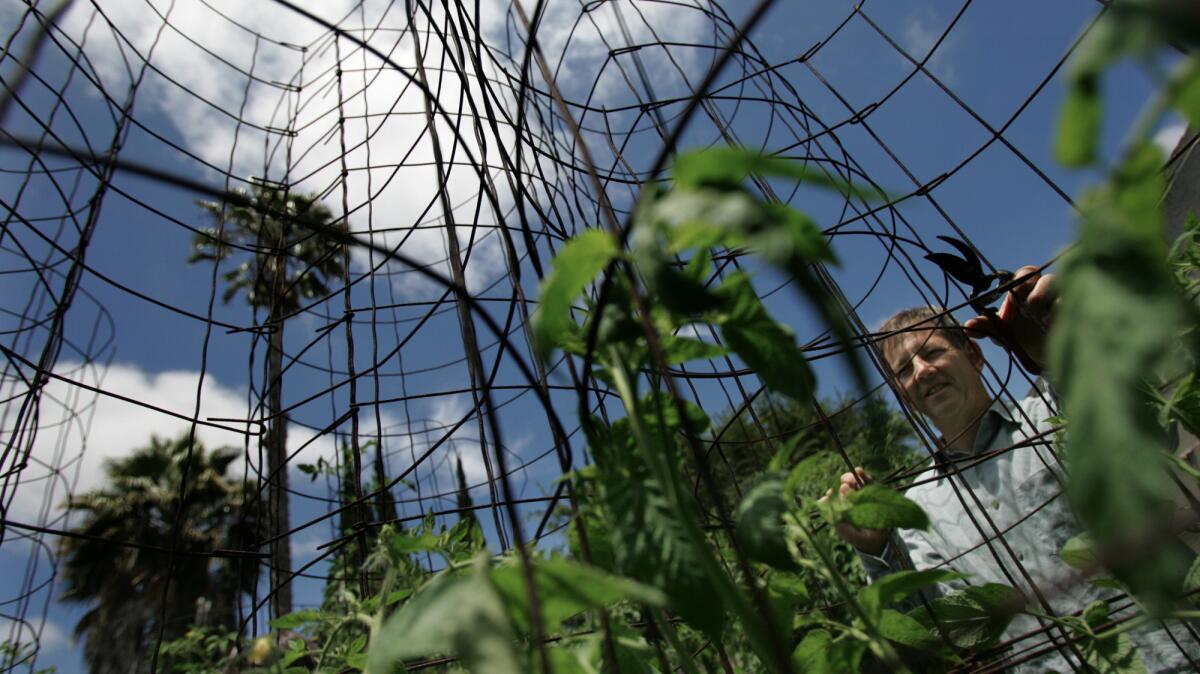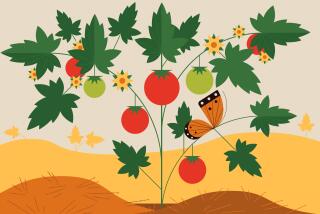10 secrets to growing the tastiest tomatoes
- Share via
Want to win this year’s tomato games?
Then you might want to buy some more tomato plants.
You probably put in your tomato plants in April or May, and that’s great.
Tomato plants do best in the hot, full sun, but their tender blossoms wither and drop when temperatures are consistently above 95 degrees. That means for much of inland Southern California, tomatoes slow or stop setting fruit during the hottest months of July and August.
But you can extend the growing season into late September (and maybe even beyond!) by following these expert tips from tomato-ologists Milt McGiffen, a Cooperative Extension vegetable specialist from UC Riverside, and Dennis Pittenger, editor of the California Master Gardener Handbook:
1. PLANT A SECOND CROP
Mid- to late June and July is the perfect time to plant another lineup of tomato plants. (Yeah, this unexpected advice blew our mind too.) But McGiffen and Pittenger said young plants will grow exceptionally well in the hot sunny weeks ahead, as long as they’re watered regularly.
2. CHOOSE WISELY
When choosing your second round of plants, look for seedlings that are sturdy and a vibrant green, stand 3 to 6 inches tall, and come in six-pack or four-pack trays — all factors that contribute to successful transplanting. You want to avoid plants that already have flowers or fruit.
3. PEEK UNDERNEATH
Bigger plants may feel like you’re getting a head start, but they’re more susceptible to transplant shock, especially if they’re root-bound — meaning their roots are pushing against the edges of the pot or creeping out the bottom. So take a peek underneath before you buy.
4. DON’T RUSH TO PLANT

Let the young plants sit outside for a couple days. Transplanting can be traumatic to plants, so let them get acclimated to the conditions in their new home before you do so.
5. CONSIDER SUPPORT

Keep plants supported with cages or trellises, but don’t rest them against a brick wall, or other heat-retaining surface, because that will intensify the damage to tender blossoms.
6. WATER WITH PRECISION
Water the plants deeply at the roots when the soil is dry; this can mean daily if the tomatoes are in pots or if it’s very hot. Avoid getting water on the leaves, which can contribute to fungus growth.
7. FIGHT PESTS NATURALLY
The no-water-on-leaves rule can be broken occasionally, if applying BT, for instance, a dead bacteria mixed in water and applied to foliage to deter pests such as tomato hornworms, the voracious predators that blend beautifully with tomato foliage and can decimate a plant overnight. BT is harmless to humans, Pittenger says.
8. FEEDING TIME
For tomatoes grown in pots, McGiffen recommends a good potting soil designed for vegetables, with slow-release fertilizer already mixed in. If you’re planting in the ground, mix a bag of compost into your soil. In either case, read the instructions on your potting soil or compost bags before you add more fertilizer. Over-feeding tomatoes — especially with too much nitrogen — can produce big, green plants with little or no fruit. Rule of thumb: If your plants are lush and green, they don’t need more fertilizer.
9. PICK WITH CARE
Once the fruit starts “breaking” — turning color from green to streaks of yellow, orange or red, it won’t get much sweeter. Leaving tomatoes too long on the vine can backfire, because the plant starts stealing sugar back from the fruit. We love the idea of juicy, vine-ripened fruit, but sunburn, insects, even tomato-eating dogs can put your harvest in jeopardy.
10. WHATEVER YOU DO ...
Let your tomatoes ripen on your kitchen counter. Just don’t put them in the fridge, Pittenger says: “That will kill their flavor.”
For even more tips, go online and search “Publication 8159, Growing Tomatoes in the Home Garden” from UC Davis. For specific gardening advice tailored to your particular region, search “Master Gardener” and your hometown.
Follow me @jmarantos on Twitter







